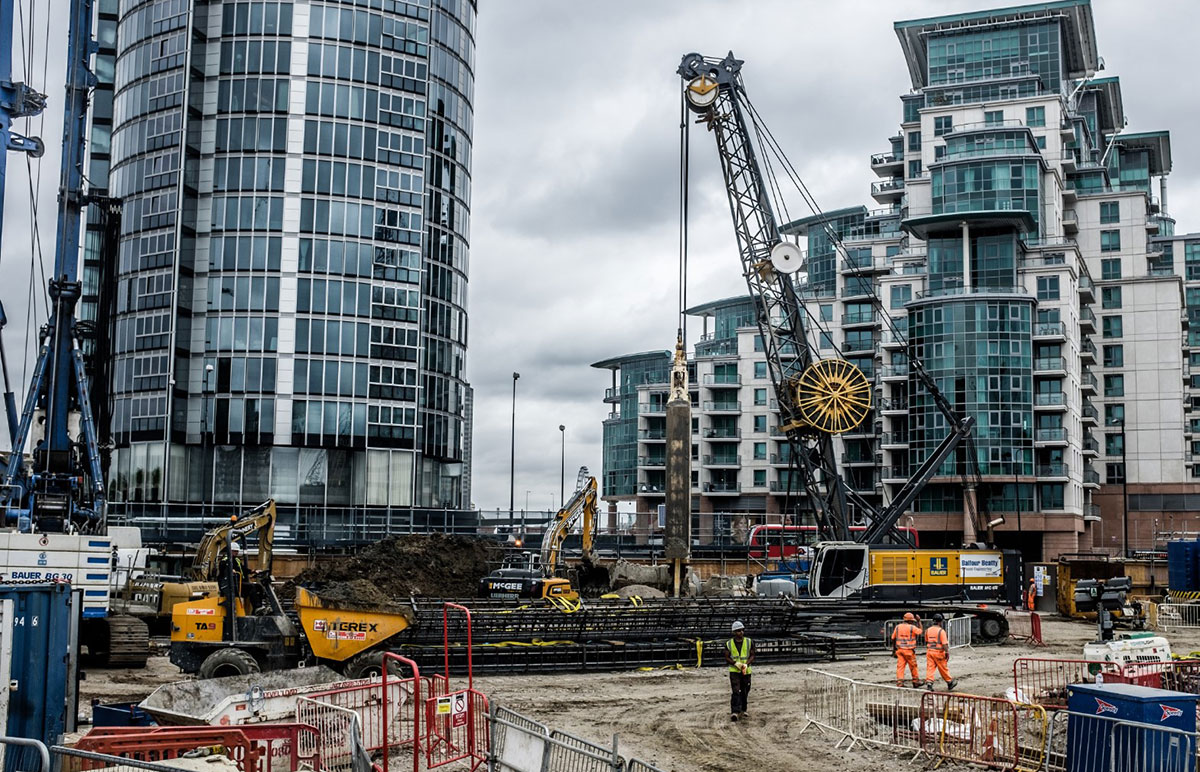Fascination About Geotheta
Fascination About Geotheta
Blog Article
The Geotheta Diaries
Table of ContentsThe Definitive Guide to GeothetaHow Geotheta can Save You Time, Stress, and Money.7 Simple Techniques For GeothetaThe Best Guide To GeothetaExamine This Report on Geotheta

They conduct website investigations, accumulate examples, carry out lab tests, and assess data to assess the suitability of the ground for building and construction tasks - Geotechnical Engineers. Based upon their searchings for, geotechnical engineers provide recommendations for structure style, incline stability, retaining frameworks, and mitigation of geotechnical dangers. They collaborate with other professionals, such as designers, architectural designers, and building and construction teams, to make sure that geotechnical considerations are incorporated right into the general job style and application
By assessing the habits and buildings of dirt and rock, they can determine potential geotechnical hazards such as landslides, dirt negotiation, or incline instability. Their experience aids prevent failures or crashes that might endanger lives and property. Here are some comprehensive responsibilities and duties of a geotechnical designer: Website Examination: Geotechnical designers conduct website examinations to gather data on subsurface conditions.
They interpret the information to understand the properties and habits of the soil and rock, including their toughness, leaks in the structure, compaction features, and groundwater problems. Geotechnical Analysis and Style: Geotechnical designers analyze the information accumulated throughout site examinations to analyze the stability and viability of the site for building projects. They do geotechnical computations and modeling to examine variables such as birthing ability, negotiation, slope security, side earth stress, and groundwater flow.
How Geotheta can Save You Time, Stress, and Money.
Structure Style: Geotechnical engineers play a crucial role in creating foundations that can securely sustain the desired framework. They analyze the soil conditions and lots needs to establish the proper foundation kind, such as shallow foundations (e.g., grounds), deep structures (e.g (https://www.easel.ly/browserEasel/14498559)., stacks), or specialized techniques like dirt enhancement. They think about aspects such as negotiation restrictions, birthing ability, and soil-structure interaction to create optimal structure designs
They examine building strategies, display website tasks, and perform field assessments to confirm that the design suggestions are adhered to. If unforeseen geotechnical problems occur, they evaluate the scenario and supply referrals for remediation or modifications to the style. Danger Analysis and Reduction: Geotechnical designers evaluate geotechnical dangers and risks connected with the job site, such as landslides, liquefaction, article or soil disintegration.

Partnership and Communication: Geotechnical engineers work carefully with other experts associated with a job, such as architects, architectural designers, and construction teams. Effective communication and collaboration are important to incorporate geotechnical considerations into the overall project style and building and construction procedure. Geotechnical engineers supply technical proficiency, response queries, and guarantee that geotechnical demands are fulfilled.
The Basic Principles Of Geotheta
Right here are some kinds of geotechnical designers: Foundation Designer: Structure engineers focus on creating and evaluating foundations for structures. They analyze the soil conditions, tons needs, and website characteristics to determine one of the most ideal foundation type and style, such as shallow foundations, deep structures, or specialized techniques like pile structures.
They examine the variables influencing slope stability, such as dirt properties, groundwater problems, and incline geometry, and develop techniques to prevent incline failings and minimize risks. Quake Designer: Quake designers specialize in assessing and designing frameworks to withstand seismic forces. They examine the seismic danger of a site, examine dirt liquefaction possibility, and establish seismic layout standards to ensure the security and durability of frameworks throughout earthquakes.
They do area screening, collect samples, and analyze the gathered data to identify the soil residential or commercial properties, geologic formations, and groundwater problems at a site. Geotechnical Instrumentation Engineer: Geotechnical instrumentation engineers concentrate on monitoring and measuring the behavior of soil, rock, and structures. They mount and preserve instrumentation systems that monitor elements such as soil settlement, groundwater degrees, incline movements, and architectural variations to evaluate performance and offer very early cautions of potential problems.
Some Known Incorrect Statements About Geotheta
They perform examinations such as triaxial examinations, debt consolidation examinations, straight shear examinations, and permeability examinations to gather information for geotechnical analysis and design. Geosynthetics Engineer: Geosynthetics engineers concentrate on the design and application of geosynthetic products, such as geotextiles, geogrids, and geomembranes. They use these materials to enhance dirt stability, strengthen slopes, supply drainage services, and control erosion.
They have a tendency to be investigatory people, which implies they're intellectual, reflective, and analytical. They are interested, methodical, reasonable, analytical, and rational. Several of them are also social, meaning they're kind, charitable, participating, client, caring, handy, understanding, skillful, and friendly. Does this seem like you? Take our cost-free job examination to figure out if geotechnical engineer is among your leading career suits.
In the office setting, geotechnical engineers use specialized software program devices to do computations, produce layouts, and analyze information. They prepare reports, evaluation job specifications, communicate with customers and employee, and coordinate job activities. The office setting offers a helpful atmosphere for research, evaluation, and partnership with other professionals entailed in the job.
9 Easy Facts About Geotheta Described
They frequently go to task websites to conduct website investigations, evaluate geotechnical conditions, and gather data for analysis. These brows through involve traveling to different locations, sometimes in remote or tough terrains. Geotechnical designers might do dirt tasting, conduct tests, and screen building tasks to ensure that the geotechnical elements of the task are being implemented correctly.
Geotechnical engineers also function in specialized geotechnical laboratories. Geotechnical laboratory designers work extensively in these settings, dealing with screening devices, operating tools, and taping information.
Report this page